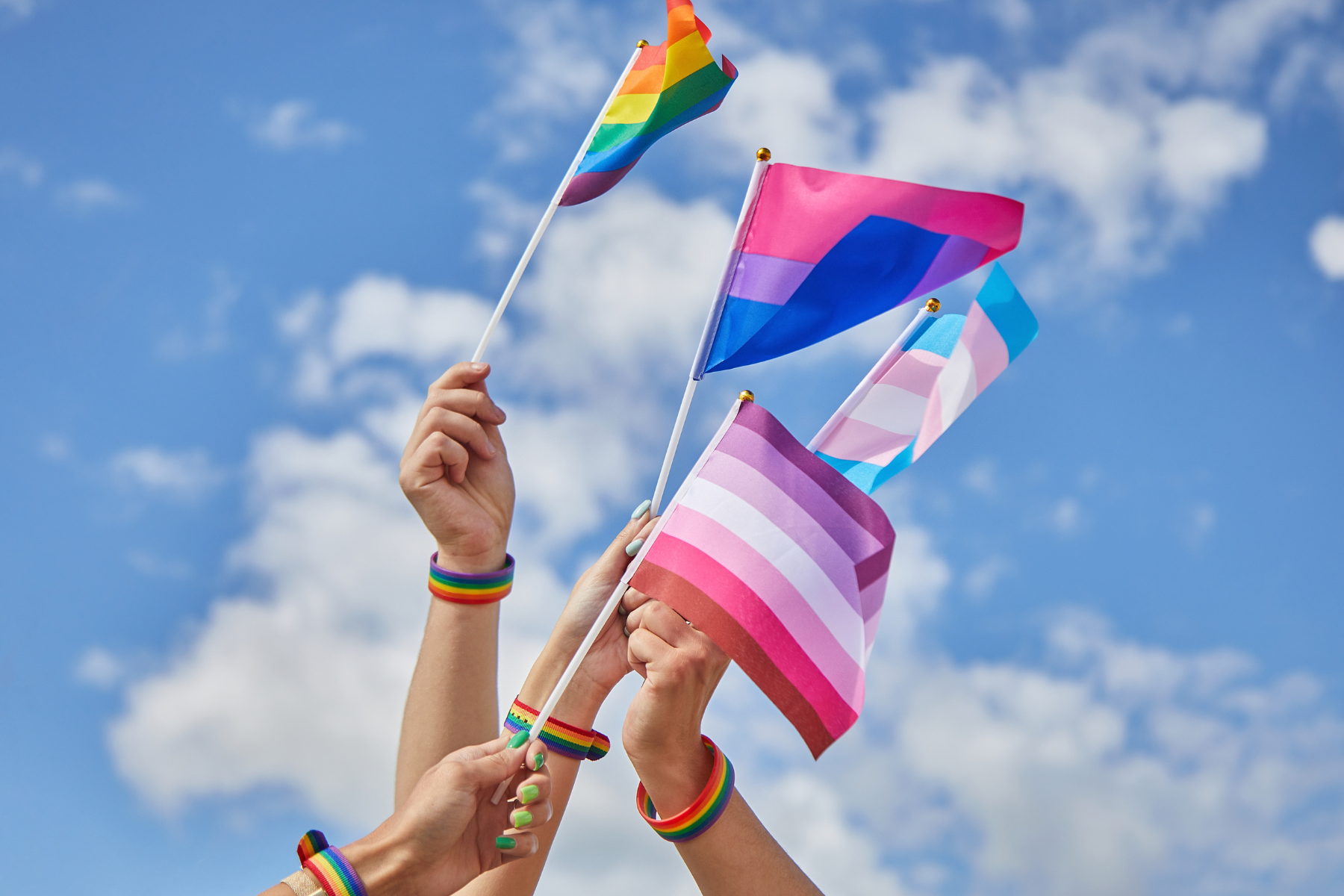
Queer environmentalism is an intersectional approach to environmental activism that acknowledges the historical relationship between the fight for LGBTQ+ rights, racial liberties, and environmental protections. It recognizes that environmental issues disproportionately affect marginalized communities, particularly BIPOC, disabled, queer and other systematically disadvantaged individuals, and advocates for a more inclusive and intersectional environmental justice movement. This pride month let’s take a dive into the key aspects of queer environmentalism and its impacts on modern communities.
Understanding the intersection between queer theory and environmentalism is critical for the future of the environmental movement.
Ecofeminism demands a poststructuralist understanding of cultural labels. It is a significant shift to our modern culture’s dependence on fixed identity markers. Bio-essentialism, the idea that behaviors are biologically predetermined rather than shaped by society, uniquely targets historically marginalized communities across the spectrum. Bio-essentialism is often used as an excuse to strip these individuals of their legal protections and rights. It is similarly used to prioritize cisnormative white humanity over nonhumans in discussions of rights.
In her introduction to queer ecology as a field of study, Professor Nicole Seymour argues that queer ecology links the importance of nonhumans into discussions of humanities. The environment around us impacts our society as a whole. By incorporating wildlife and land rights into our conversations about the climate crisis, we are including indigenous voices as well as protecting the larger ecosystems through which our everyday life depends. Within this discussion of ecofeminism, it is vital for race to be a focal point to the environmental justice movement, as the communities carrying the heaviest burden from these disasters are most predominantly BIPOC, low-income, and/or LGBTQ+ identifying individuals. Queer environmentalism requires a deeper understanding of diverse identities and challenges heteronormative narratives about our environment, offering opportunities for a more inclusive and sustainable relationship with the natural world.
Environmentalism and queerness are likewise linked due to the disproportionate burden for queer communities during climate disasters. In terms of the overall social, economic, health, and cultural burden, most research primarily focuses on the cis-heteronormative white experience. While this identity is credibly at risk for climate impacts, they are not the most vulnerable population. Toxic pollutant industries disproportionately impact communities of color due to racist redlining practices and housing gentrification, leaving intersectional communities, especially queer or disabled BIPOC communities, in hazardous living conditions. Climate change and environmental disasters such as forest fires or hurricanes are specific hazards for people already at risk from unsafe housing and work situations. Those who are excluded most from emergency disaster relief and face the most violence during relocation are transgender people, who already experience high rates of institutional discrimination. In order to protect the lives of those most threatened by climate disasters, we need to acknowledge the complex intersections of identity and provide relief systems that reach their intended people.
Due to institutionalized discrimination in the health care system, environmental impacts threaten the lives and health of LGBTQ+ individuals at many different levels. While the health disparities along racial/ethnic and socioeconomic status lines are commonly discussed in the medical community, conversations about queer identities are often left out. Chronic illnesses such as respiratory diseases, cardiovascular disease, and cancer are most prominently ignored. These are all illnesses primarily associated with high levels of environmental hazard exposure, where rates are significantly higher in the LGBTQ+ population than in the cisgender heterosexual population. On top of already being at a higher risk of contracting chronic illnesses, queer persons (with an emphasis on disabled and BIPOC queers) often face medical discrimination or are less likely to seek medical care due to extensive previous mistreatment. In 2015, one-third of transgender individuals in the US reported either verbal harassment or the refusal of medical support by healthcare professionals.
Today, legalized transphobia specifically allows for clear medical discrimination, exempting doctors from accountability to their patients. Florida recently passed a bill that allows healthcare providers to deny medical treatment to transgender patients, even in life-endangering situations. Environmental issues are human issues in the fact that everyone will be impacted by climate change. However, ignoring the vulnerability of transgender people, particularly those within the intersection of disabled and BIPOC communities, will endanger the very lives of the people most in need of protection. To build a safe, sustainable, and more inclusive world for all, we need to listen to Black and brown queer voices, and endeavor to include the various intersections of our identities within the environmentalism movement.
We all live on Earth, but due to centuries of historical systematic neglect, certain communities carry a heavier burden of climate change, and this needs to be included in activist conversations. By acknowledging and understanding the unique challenges and burdens faced by queer communities and advocating for their rights within the broader environmental movement, we challenge the norm of whom our built environments are made for. With hard-working environmentalists from all walks of life, a more equitable and sustainable future can be achieved, where the voices and experiences of all individuals, regardless of sexual orientation or gender identity, are heard and valued.
Sources
https://www.researchgate.net - A Proposal to Converge Queer Theory and Ecofeminism
https://www.cambridge.org - Queer Ecologies and Queer Environmentalisms
https://earthjustice.org - Why Queer Liberation Is an Environmental Justice Issue


